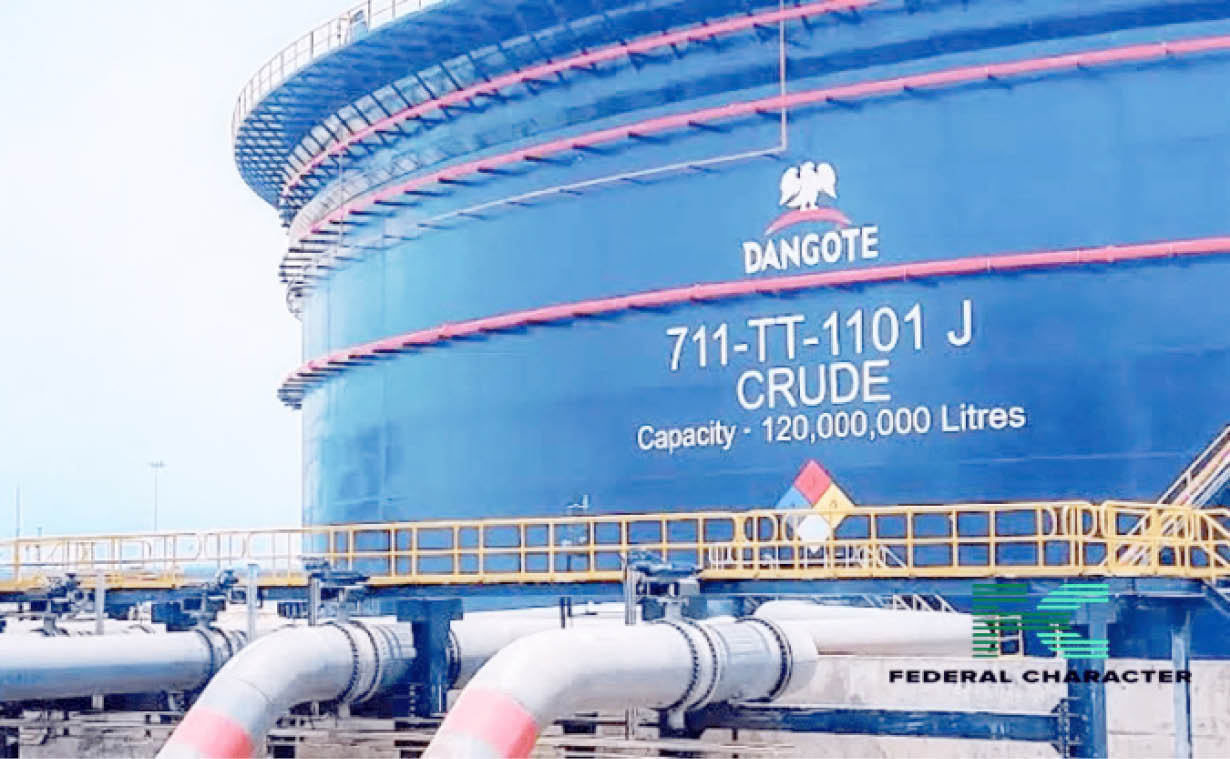
The Dangote Petroleum Refinery has announced the immediate suspension of petrol sales in the naira, raising alarms across Nigeria’s downstream oil sector and stirring concerns over a potential surge in fuel prices.
The decision, communicated to marketers via email at exactly 6:42 p.m. on Friday, is set to take effect on Sunday, September 28, 2025. The company blamed the move on the exhaustion of its allocation under the federal government’s crude-for-naira exchange programme.
The notice, titled “Suspension of DPRP PMS Naira Sales – Effective 28th September 2025”, was signed by the Group Commercial Operations team at Dangote Petroleum Refinery & Petrochemicals. It instructed customers with ongoing naira-based transactions to initiate refund processes if desired.
“We have been selling petrol beyond our naira-crude allocations and are no longer able to sustain Naira-based PMS sales going forward,” the company said in the notice. “Customers wishing to retrieve their payments should submit formal refund requests.”
The refinery’s decision comes just months after a similar temporary suspension in March 2025, which triggered fears of creeping dollarisation of domestic fuel sales and saw pump prices in some regions soar to nearly ₦1,000 per litre.
Fuel Sales Crisis Coincides with Labour Unrest
The announcement also lands at a delicate moment for the refinery, which is facing backlash over the alleged dismissal of over 800 Nigerian workers. Labour unions, led by the Petroleum and Natural Gas Senior Staff Association of Nigeria (PENGASSAN), have accused the company of anti-labour practices and vowed to take nationwide action if the matter is not resolved.
Union leaders have described the mass sackings as “corporate cruelty”, calling on the federal government to intervene.
“This is an unjust and insensitive decision by a company benefiting from national goodwill,” said a senior union official. “We will not fold our arms while Nigerian workers are treated like collateral damage.”
Dangote Refinery is widely seen as critical to Nigeria’s fuel self-sufficiency, and any disruption to its operations whether from payment policy changes or industrial action could impact the federal government’s energy reform agenda.
The refinery has been central to efforts aimed at reducing fuel imports, stabilising pump prices, and easing pressure on foreign exchange reserves.
Now, industry watchers fear that the twin crises of payment disruption and labour unrest could undermine those gains.
“This is a defining moment,” said one downstream consultant. “The government must step in to ensure that energy security is not sacrificed on the altar of policy uncertainty or internal company disputes.”
Background: The Crude-for-Naira Framework
Under the crude-for-naira deal, select downstream operators were allocated crude supplies in exchange for domestic sales denominated in naira, part of a wider attempt to shield the local economy from global oil price volatility and dollar scarcity.
However, as Nigeria grapples with a weakening naira, exchange rate instability, and lingering inflation, the programme’s sustainability has come under renewed scrutiny.


